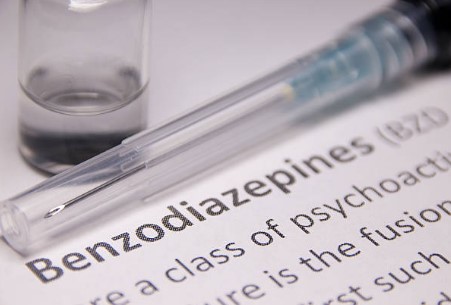Drug abuse is a growing problem that affects individuals, families, and communities. It not only has a devastating impact on the individual using drugs, but it also has far-reaching consequences for society as a whole. In this article, we will explore the impact of drug abuse on society and the various social consequences that arise from it.
The Prevalence of Drug Abuse in Society
Drug abuse is a widespread issue that affects people of all ages, races, and socioeconomic backgrounds. According to the National Survey on Drug Use and Health, approximately 20 million Americans aged 12 and older have used an illegal drug in the past 30 days. This number equates to 7.7% of the population. Additionally, the survey found that 164.8 million Americans aged 12 and older have used an illicit drug at least once in their lifetime.
These statistics show that drug abuse is a prevalent issue in society and one that cannot be ignored. It affects people from all walks of life and has a significant impact on the well-being of individuals and communities.
The Social Consequences of Drug Abuse
Drug abuse has a wide range of social consequences that affect not only the individual using drugs but also their family, friends, and community. Some of the most significant social consequences of drug abuse include:
- Economic Impact: Drug abuse has a significant economic impact on society. It costs the United States billions of dollars each year in healthcare expenses, lost productivity, and criminal justice costs. This financial burden affects not only the government but also taxpayers and businesses.
- Crime: Drug abuse is closely linked to crime. Many individuals who use drugs engage in criminal activities to support their addiction. This includes theft, drug dealing, and other illegal activities. The increase in crime rates puts a strain on law enforcement and the criminal justice system, leading to higher costs for taxpayers.
- Family Dysfunction: Drug abuse can have a devastating impact on families. It can lead to broken relationships, domestic violence, and child abuse. Children of parents who abuse drugs are more likely to experience neglect, physical abuse, and emotional trauma. This can have long-lasting effects on their well-being and future relationships.
- Health Consequences: Drug abuse can have severe health consequences for both the individual using drugs and those around them. It can lead to addiction, overdose, and the spread of infectious diseases such as HIV and hepatitis C. Additionally, drug abuse can cause mental health issues, including depression, anxiety, and psychosis.
- Community Impact: Drug abuse affects not only the individual using drugs but also their community. It can lead to increased crime rates, decreased property values, and a decline in the overall quality of life. This can have a ripple effect on the community, leading to a breakdown of social structures and a sense of fear and insecurity.
The Role of Education and Prevention
One of the most effective ways to combat the impact of drug abuse on society is through education and prevention. By educating individuals about the dangers of drug abuse and providing them with the tools to make healthy choices, we can reduce the prevalence of drug abuse and its social consequences.
Education for Youth
It is crucial to educate young people about the dangers of drug abuse before they are exposed to it. Schools, community organizations, and parents can play a vital role in educating youth about the risks associated with drug use. This includes teaching them about the effects of drugs on the body, the potential consequences of drug abuse, and how to resist peer pressure.
Prevention Programs
Prevention programs are another essential tool in the fight against drug abuse. These programs aim to prevent drug use by providing individuals with the skills and resources they need to make healthy choices. They can include education, counseling, and support services for individuals and families affected by drug abuse.
The Importance of Treatment and Recovery
For those who are already struggling with drug abuse, treatment and recovery are crucial for breaking the cycle of addiction and reducing the impact on society. Treatment programs can help individuals overcome their addiction and address any underlying issues that may have contributed to their drug use.
Access to Treatment
Unfortunately, many individuals do not have access to treatment programs due to financial constraints or lack of resources in their community. This can lead to a cycle of addiction and relapse, perpetuating the social consequences of drug abuse. It is essential to increase access to treatment programs and provide support for those in recovery to reduce the impact of drug abuse on society.
Support for Recovery
Recovery from drug abuse is an ongoing process that requires support and resources. This includes access to counseling, support groups, and other services that can help individuals maintain their sobriety and rebuild their lives. By providing support for recovery, we can reduce the likelihood of relapse and the social consequences that come with it.
Conclusion
Drug abuse has a significant impact on society, affecting individuals, families, and communities. It leads to economic costs, crime, family dysfunction, and health consequences. However, through education, prevention, and treatment, we can reduce the prevalence of drug abuse and its social consequences. By working together, we can create a healthier, safer society for all.








Leave a comment
You must be logged in to post a comment.